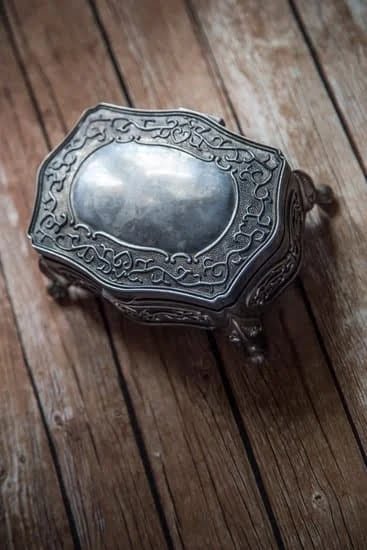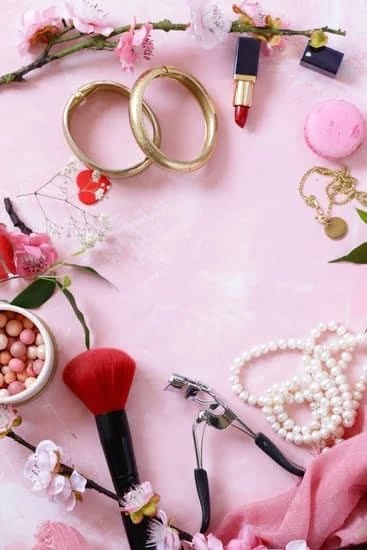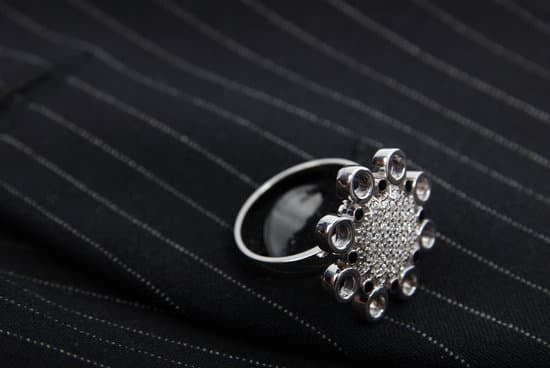Introduction
The dangers of buying fake gold jewelry from a store can be significant. Not only are you paying for something that isn’t actually worth the value you paid, but it can lead to health risks if the fake materials used to manufacture the jewelry contain harmful toxins. In some cases, customers may not even be aware that they have purchased fake gold until long after they have made their purchase. If this happens to you, you may want to consider taking legal action against the store that sold you the fake gold jewelry.
Yes, in some cases it is possible to sue a jewelry store for selling fake gold. Depending on the situation and evidence presented, there are several potential legal claims available to pursue if a seller knowingly sells items not as described or misrepresented. These include claims of fraud, breach of contract and misrepresentation basedon implied warranties of merchantability – meaning that goods should be fit for their ordinary purpose. Additionally, depending on the state or country in which you live, certain consumer protection laws apply which allow consumers to take legal action against stores who have failed to meet certain standards. To establish any one of these legal claims requires proof that the seller either knew or should have known that what they were selling was not genuine gold jewelry and acted negligently by selling it anyway without informing consumers of its true nature or value.
Legal Definition of Fake Gold
Yes, you can sue a jewelry store for selling fake gold. Fake gold is defined as any item containing an alloy or combination of metals that does not meet the standards set forth by governmental and international authorities for control of purity, authenticity and quality assurance. Fake gold does not contain the amount of gold that it claims to, or has other elements mixed into it that deceives buyers about what it actually contains.
Those who have been sold fake gold may have certain legal rights, including the right to sue the jewelry store for losses suffered from purchasing the item. When suing, you must prove that the seller’s product was misrepresented and/or breached any warranties made to you by providing access to documentation such as receipts, contract and/or quality certification issued with the purchase. Further evidence may be attested to in court such as testimonies of witnesses (such as independent jewelers) and expert appraisers who may be used to represent the estimated worth of items purchased purported to be real gold in contrast with their actual value. By demonstrating those points, you may have sufficient grounds to receive reimbursement or compensation if successful in your suit against an alleged wrongdoing party.
Does a Jewelry Store Have an Obligation to Sell Genuine Gold?
Yes, jewelry stores have an obligation to their customers to sell genuine gold. Whenever a transaction takes place involving money and expensive items like gold, both seller and buyer are legally obligated to fulfill the terms of the purchase contract. Jewelry stores need to accurately describe the products they offer for sale, including descriptions of any gold they may be selling, so that customers know if it is genuine or not. If a customer buys what they believe is real gold from a jewelry store only to discover that it was a fake or misrepresented as gold, then they may have grounds to sue the store for breach of warranty. Depending on the circumstances, other legal remedies may also be available such as seeking financial compensation for negligence or recovering any losses due to fraudulent activity.
Tips for Identifying Genuine Gold Jewelry
Yes, you can sue a jewelry store for selling fake gold. Your first step should be to consult a lawyer who specializes in consumer protection laws. Your case may be covered by the Magnuson–Moss Warranty Act, which gives consumers the right to seek legal recourse for deceptive practices. Alternatively, you can follow some tips for recognizing genuine gold jewelry to protect yourself from being cheated. These include verifying any gold or hallmarks on the jewelry with your local jeweler, getting a second opinion about jewelry’s authenticity from an expert, and looking for imperfections in the metal as genuine gold will usually have inscriptions or imperfections not found in fake gold due to its handmade nature. Additionally, inspect its weight; real gold will usually weigh more than fake gold as it is heavier than other types of metal. Finally, have the piece professionally tested before buying it – this is typically done through an independent jeweler or gemologist at little expense – to confirm that it is indeed made of pure 24-karat gold.
What Are Your Options If You Discover You’ve Purchased Fake Gold?
Yes, it is possible to sue a jewelry store for selling fake gold. Depending on the circumstances, consumers may have various options available to them in seeking to hold the business accountable. One option may be to file a lawsuit against the jewelry business through Small Claims Court, which is a specialized court designed to help individuals pursue cases without lawyers or contracts. If the amount of compensation that can be recovered is likely to exceed the limits of Small Claims Court, another option may include filing a traditional civil lawsuit in state or federal court. Additionally, depending on where you purchased the item and your state’s laws, you may have additional rights and remedies under consumer protection laws. For instance, some states provide claimants triple damages if they were victim of certain deceptive selling practices. Finally, one alternative to filing legal action could involve negotiating an out-of-court settlement with the jewelry business; such settlements are sometimes ideal because they are typically faster, cost less money and require less effort than other methods of dispute resolution.
Exploring Legal Action Against a Jewelry Store
Yes, it is possible to sue a jewelry store for selling fake gold. Depending upon the severity of the situation, one could pursue a variety of legal actions against the store in question. In most cases, this would involve a civil lawsuit brought by the buyer seeking compensation for any damages caused by purchasing counterfeit gold jewelry. For example, if the buyer relied on adulterated gold pieces to make payments or investments they could seek restitution. They may also be able to seek financial damages from the jewelry store if they have suffered an economic loss as a result of the phony gold purchase. Alternatively, purchasers may be able to recover punitive damages from a jewelry store for selling them fake gold, depending on applicable laws and statutes that govern such matters in their jurisdiction. Criminal charges are also available if applicable and warranted based on an investigation as well as any evidence gathered that suggests fraud or other crimes were committed by the store when peddling fake gold. Ultimately, if you have been wronged by a jewelry store due to purchasing counterfeit gold you have options for legal recourse that can help protect your interests and secure any appropriate measure of recompense.
Working with an Attorney When Suing a Jewelry Store
If you think you have purchased fake gold from a jewelry store, you may be able to sue the business for its misconduct. If you choose to do so, it is important that you consult with a qualified attorney in your area as soon as possible in order to discuss your legal rights and any potential claims against the store. Before filing a lawsuit, there are several steps that can be taken which may help prove your case, including obtaining documentary evidence of the transaction and having potential witnesses to testify on your behalf. An experienced lawyer can provide invaluable assistance throughout this process and ensure that all necessary evidence is collected and presented. Additionally, an attorney will be able to review any relevant state or federal laws pertaining to consumer protection law or false advertising and advise what actions can or should be taken against the business in question. Your lawyer can also negotiate on your behalf with the business while mitigating risks associated with litigation as well as walk you through each step of proceedings. Ultimately, having a dedicated attorney on your side when suing a jewelry store can help maximize damages recovered and achieve the best possible outcome for your case.
Conclusion
Yes, you can sue a jewelry store for selling fake gold. Under consumer protection laws, jewelers are legally obligated to accurately inform customers about the purity and karat weight of gold items they purchase. If a customer is sold gold that has been misrepresented in terms of its quality or grade, they can file a lawsuit against the retailer for breach of contract and/or false advertising.
If you find yourself in this situation, it’s important to act quickly by gathering evidence for your case such as written receipts and documents from your transaction with the jewelry store. In addition, you should also collect samples of the metal for testing. Finally, it would be wise to speak with an experienced attorney who specializes in consumer protection law so that your rights are fully protected throughout the lawsuit process. By doing so, you will have a better chance at obtaining adequate compensation from the seller for their negligent actions.

Welcome to my jewelry blog! My name is Sarah and I am the owner of this blog.
I love making jewelry and sharing my creations with others.
So whether you’re someone who loves wearing jewelry yourself or simply enjoys learning about it, be sure to check out my blog for insightful posts on everything related to this exciting topic!





